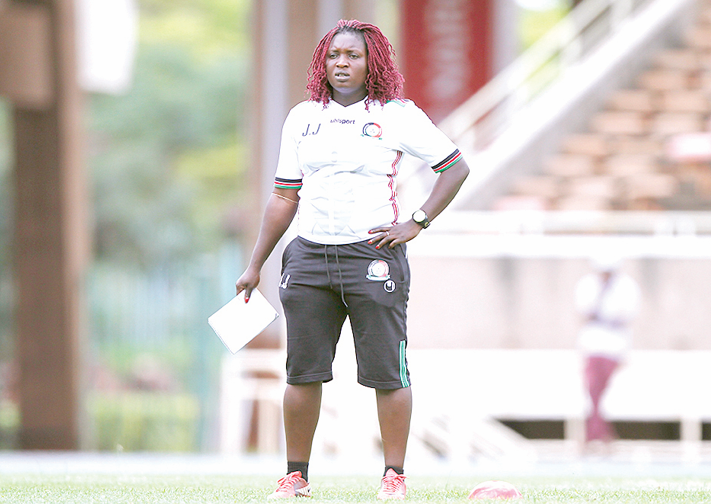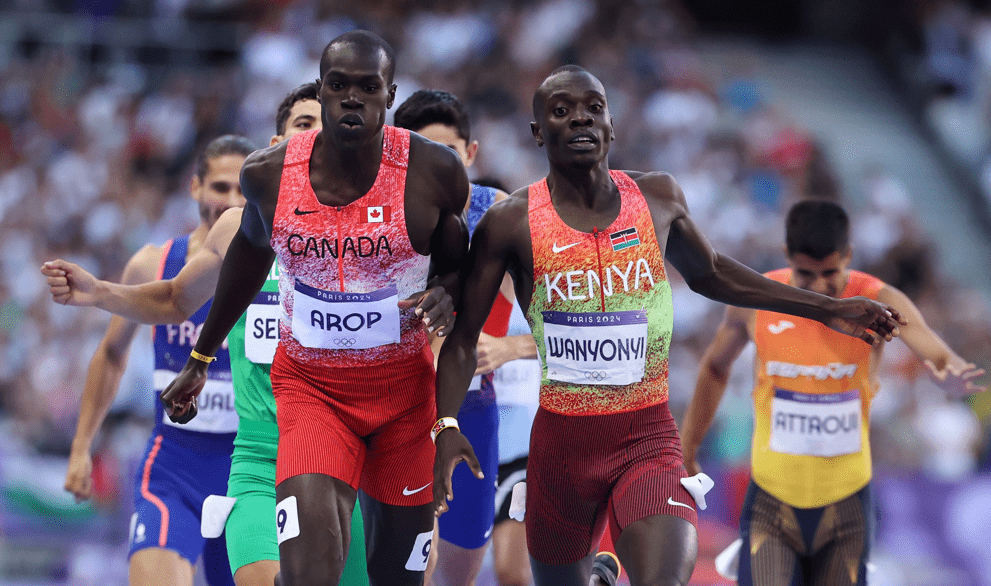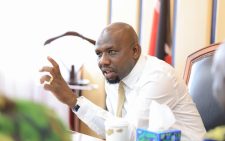Hurdles and opportunities; the journey of a female footballer

Growing up in Korogocho slum, known to be resident to a population of around 200,000 people, football coach Jackline Juma knew football was her only way out of poverty.
At a young age, playing football kept her off the ills and crimes that come with living in an informal settlement such as robbery, drug abuse as well as the peer pressure to indulge in early sexual activities.
And while she has managed to climb the ladder from being a football player to a coach and a Confederation of African Cup instructor, her inspirational journey has been full of hurdles and struggles.
At the age of nine years, Jackline’s family started noticing that she was not like the other girls in the area.
“While most girls my age were playing with dolls and cooking with dirt, I was busy playing football with my brother despite having younger sisters. I would also join boys and few girls training in a field that was near our home,” says Jackline.
Her choice of games did not go well with her parents, who believed it was a boy’s game, thereby forbidding her from going anywhere close to a football pitch.
Still, she would sneak out of the house every evening to go for training and wait for the consequences. “I would come back home to a thorough beating from my parents for disobeying their orders. The next day, I would still sneak out and go. It got to a point they started reducing the beating and it encouraged me,” she adds.
At the age of 10, Jackline joined a community team, which had professional coaches and played in the zones for various championships and a year later, she debuted her career by playing for Mathare Youth Sports Association (MYSA). This opened her to a dream of possibilities, which then changed her perspective towards football.
From slums to national team
Jackline says at first, playing football was just for fun and a game like any other, but joining a team, she realised there were more opportunities that came with playing the great game. She learnt of the possible educational sponsorship for players who excelled both in the pitch and in class.
This made her work harder both in football and in class, with her efforts paying off when she landed a scholarship that enabled her to go through her secondary education without paying a dime.
“In class, I would work hard to maintain my scholarship and in the pitch, to ensure I maintain the required points. Playing further ensured my siblings also went through high school through the same sponsorship. This is where my parents fully changed their mind and supported me,” she says.
She was later selected to join Mathare United Women’s Senior Team for Under 20 years. In 2003, she received her first national assignment, to play for Kenya’s Under 20 women team. “At the national team, my first assignment was in Nigeria. Coming from the slums and boarding a flight because of a game many perceived as men’s was not one of the things I foresaw. It brought joy and pride to my family,” she says.
Later that year, she was called to play for the national senior team for the Women World Cup qualifier where they played several teams including Cameroon.
Her great skills saw her maintain her position in the pitch until in 2016 when she hung her boots after playing the Women African Cup of Nations before transiting to coaching. She has had the opportunity to coach various teams including Kenya’s Under 20 team.
And while she showed up to the pitch every time she was required, Jackline confessed that she was struggling to find the balance of being the great footballer many knew her to be and being a good mother to her baby.
In 2005, immediately after completing her secondary education, Jackline says she succumbed to peer pressure that saw her get pregnant just when her career was just beginning to soar. “I had the option of aborting my child and continuing with football, but I chose her. Gladly, I had good coaches who allowed me into the pitch until I was seven months pregnant, when I took a break,” she says.
Four months after giving birth, Jackline wanted to go back to the pitch, but the challenge was her baby. “I had already disappointed my mother by getting pregnant, yet she saw me as the only hope. At first, I would go with the baby to the field where one of the coaches would sooth the baby as I played before my mother accepted I be leaving the baby with her,” she notes.
As a first-time mother, she never knew how to handle herself or the baby and this caused her a lot of trauma and stigma, and came close to depression in some instances.
Jackline recalls how her breast milk would leak all over her jersey and she had to continue playing as the only opportunity she had of breastfeeding the baby was either during halftime or at the end of the game. This meant the breastmilk leaks were part of her even on the days she was away from home.
Mother’s sacrifice
“Some of the players were so disgusted and really judged me, but some were supportive and could help me with the baby when I was playing,” she says.
When the baby was just 10 months old, Jackline joined a team formed by the Ministry of Sports, which saw her travelling around the country for matches, a move that really affected her mentally. She says unlike home matches where she would carry the baby or leave him behind for a few hours, away matches meant leaving him for days. At one point, she gave up the fight and decided to quit playing and focus on parenthood, but later realised she had to go back because it was her source of income.
“My turning point was when my child started calling me by name while calling her grandmother, ‘mother’ and I decided to stop playing. But then football is what puts food on our table and so I had to go back to the pitch. I prayed that my child would one day understand the sacrifices I had to make for her,” she notes.
Years later, when she got pregnant with her second born, Jackline says things were different because she had already gained experience and at 27 years, she could somehow balance her life.
Even though she transited from the pitch to coaching, she says it is an uphill task to find balance being a mother to her own children, a coach and a mentor to the girls of Korogocho slums, who she trains every evening. She strives to ensure that she is not only a provider, but a present mother to her children as they grow up. As a coach, the burden of also being a mother to close to 20 girls she coaches majorly lies on her shoulders.
“Aside from coaching them, I guide them through life skills and sometimes provide for them, especially sanitary towels. As a coach, I cannot sit down and let them fail to go to school or train because they do not have sanitary towels,” she says.











